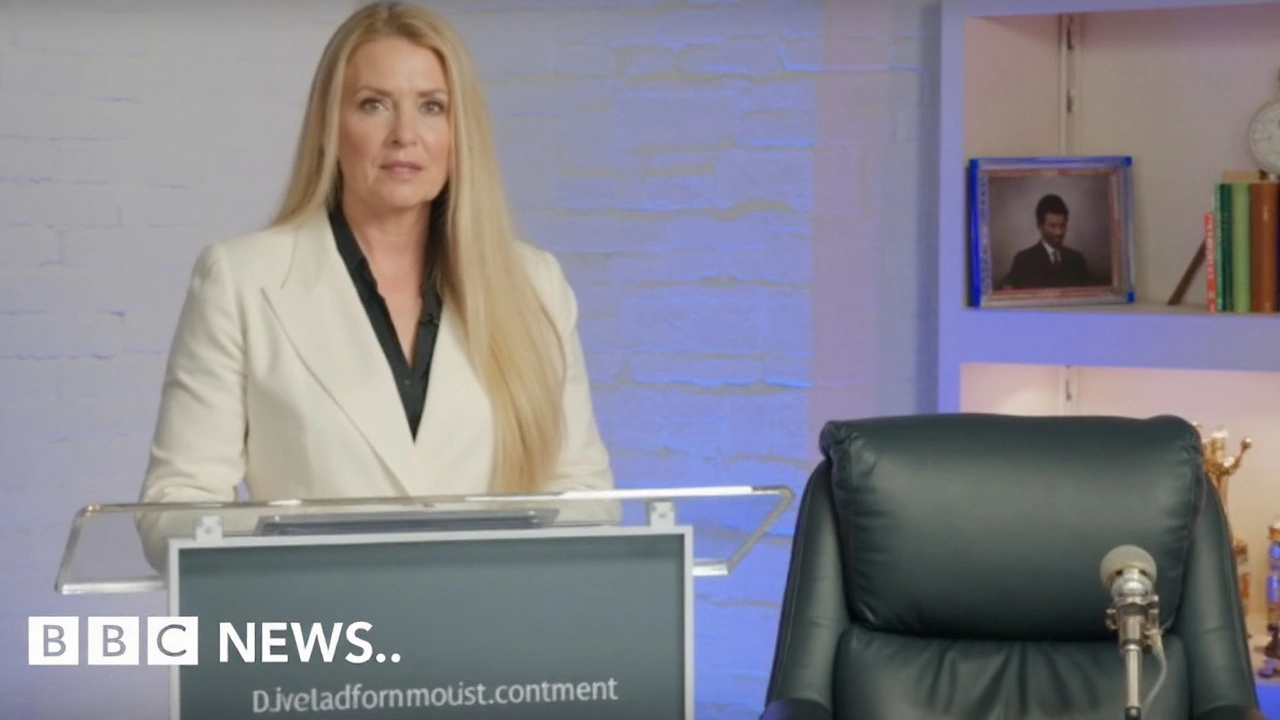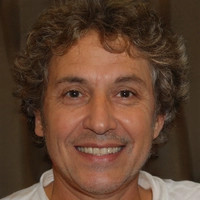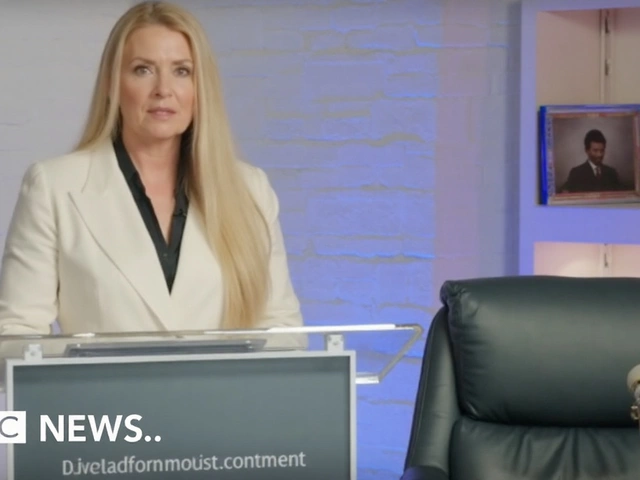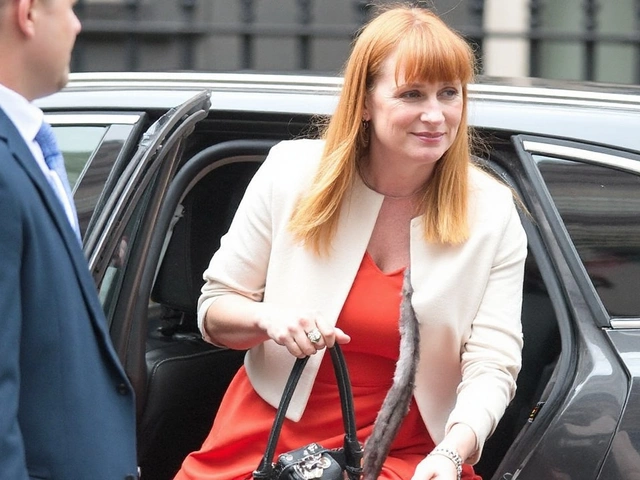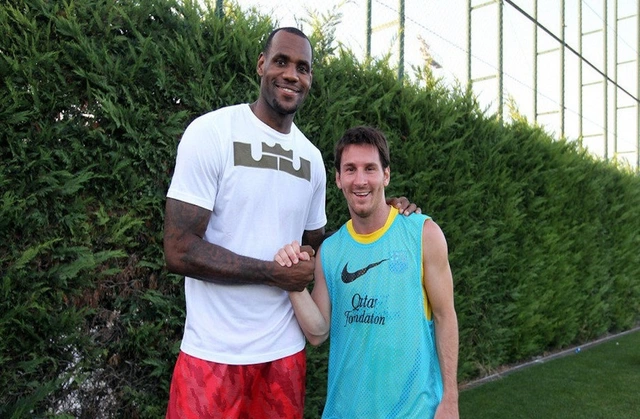Erika Kirk vows to carry on mission as reports swirl around Utah campus attack
Erika Kirk stepped forward with an emotional message that spread quickly across conservative circles: her husband's voice will not fade. In a video statement following reports of a deadly attack involving Charlie Kirk at a university in Utah, she promised to continue the work he championed and said the grief of this moment would be turned into action.
Her remarks, her first public comments since the incident, focused on family and faith. She described her husband as a devoted partner who asked every day how he could be a better husband and father. She said his private ambition—if he ever ran for office—was to revive the American family, and she intends to push that idea forward through Turning Point USA, the organization he helped build into a powerful force on the right.
Erika spoke in stark terms to those she believes targeted him for his politics. She warned that anyone who thought his work would fade misread the moment, saying the fire inside her has been lit and that she plans to carry that message far beyond one campus or one news cycle. Her tone was raw and determined, and it struck a chord with supporters who flooded social media with tributes and prayers.
Charlie Kirk was a prominent conservative activist and media figure who built a large following by pressing themes of patriotism, limited government, and Christian faith. He became a regular presence on college campuses, where his events often drew long lines of fans—and sometimes loud protest from opponents. Supporters saw him as a blunt and unapologetic voice; critics argued his rhetoric heightened divisions. Either way, his profile in American politics was undeniable.
Turning Point USA, the youth-focused group he led, spent the past decade growing chapters at schools nationwide and hosting large-scale conferences featuring Republican politicians and conservative personalities. The group positioned itself as a counterweight to what it calls a dominant progressive culture on campuses, and Kirk became its most recognizable face, urging young conservatives to get organized and vote.

What we know—and what we don’t—about the Utah case
Early accounts from the scene described a shooting at a Utah university where a gunman opened fire. Local authorities said an arrest was made and that prosecutors are reviewing evidence. As of now, key details—timelines, the suspect’s identity, possible motive, and a formal confirmation of the events—have not been fully released by officials. We could not independently verify several claims circulating online, and law enforcement has not held a full briefing to answer outstanding questions.
People who said they knew the person in custody expressed disbelief, calling the arrest a shock. Investigators will now work to corroborate witness statements, pull surveillance footage, and reconstruct the moments before and after the shooting. Those steps take time, and early reports are often revised as facts harden. Officials typically release charging documents, identify victims and suspects, and outline the legal path forward once they are confident they have a solid account.
The swirl of attention around this case reflects how fast political news travels—and how quickly it can get distorted. In high-profile incidents, rumors and unverified claims often land before police statements, which is why agencies stress patience until they can provide names, charges, and evidence in a formal setting. That process is especially critical when a national figure is involved and emotions are running high.
Reactions across conservative media came fast. Many framed the shooting as an assault on free speech and on the right to speak on campus without fear. Allies praised Erika’s resolve and said the movement he shaped would not slow down. Others urged caution until authorities release full details, noting that premature claims can complicate investigations and inflame tensions.
Campus events featuring polarizing speakers have faced heightened security in recent years. Universities typically coordinate with local police, set up controlled entry points, and separate protesters from attendees to avoid clashes. Even with precautions, tense environments can develop quickly, especially when large crowds, counterprotests, and social media livestreams converge.
For now, several practical questions remain. What specific charges will prosecutors bring, and when? Did the suspect act alone? What security measures were in place at the venue, and did they function as planned? When will officials release a full timeline? Answers to those questions will shape both the legal case and the political aftermath.
As the investigation continues, Erika Kirk’s message has become the emotional center of the story for many on the right. She tied her husband’s legacy to the future of Turning Point USA and to a broader effort to bolster marriage, faith, and civic duty. If she follows through with new initiatives—or elevates existing ones—expect TPUSA to expand programming around family policy, church engagement, and campus outreach, areas that already sit near the core of its brand.
Supporters are organizing vigils and memorials while waiting for official updates. Conservative lawmakers and media figures have signaled they intend to honor what they call a life of service to the movement. On the legal side, prosecutors will likely move from evidence review to formal charges if they believe the case is strong. Those filings should clarify the events and set the stage for court proceedings.
However the investigation unfolds, the political implications are clear. A prominent conservative voice, central to youth organizing and campus debates, is now at the center of a case drawing national attention. Erika Kirk has positioned herself as both a grieving widow and a torchbearer for the causes her husband championed. The next steps—from the prosecutor’s office to the leadership of Turning Point USA—will show how this moment reshapes the movement he helped build.
